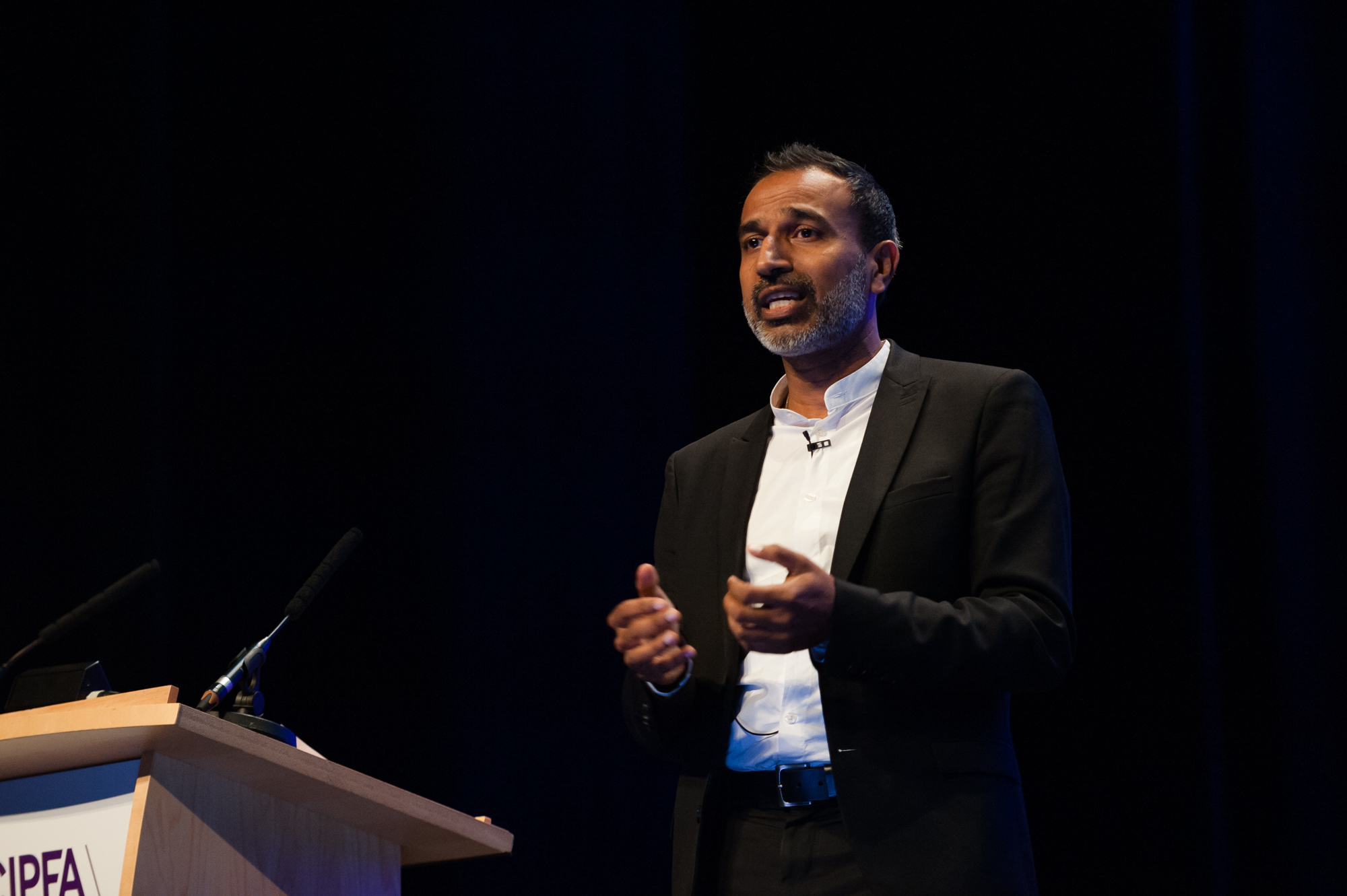
Sony Kapoor [pictured above], chief executive of the economic policy think-tank Re-Define, said that people around the world had become more environmentally conscious and governments must design policies based on this.
“You have to move to a sustainable base model, you can’t build plans in your strategy that come up against the sustainable zeitgeist,” Kapoor said.
He noted that there is a “big trend” of governments and private sector companies being sued for large scale environmental damage.
“We have to face the consequences of what happens. If there is a flood, this will increase the burden for the taxpayer – the bill is going to end up with the taxpayer,” he added.
Tim Lang, professor of food policy at the Centre for Food Policy, City University London, claimed that global food consumption habits would need to change to become more sustainable.
“The food system has run away and in Britain we are an absolute prime example of that,” he warned.
Lang suggested that the global population needs to “consume less” and think about the types of food it eats, such as reducing red meat consumption noting that there were now more farmed animals than humans on the planet.
“The rich world is eating unsustainably and the poor world is catching up fast,” he said.
He agreed with Kapoor that large scale policy changes would necessary but remained sceptical about the likelihood of this.
“We are not going to have change unless we have a plan. There is a terrible track record on big food policy changes – it only happens when there’s a crisis,” he said.
However, he noted that local authorities are well placed to instigate change by communicating this message to communities.
Last month, Greater Manchester Combined Authority unveiled a target of becoming carbon neutral by 2050.











